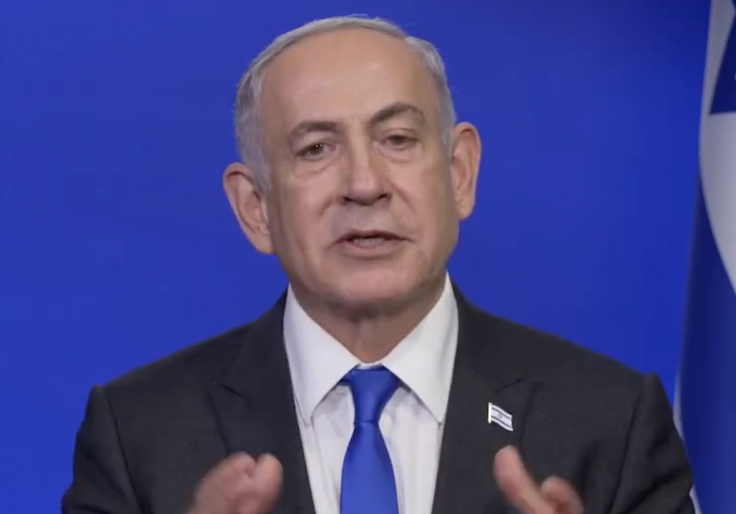The prime minister said he is ‘committed’ to the war until Hamas is eliminated

JERUSALEM (Reuters)—Israeli prime minister Benjamin Netanyahu dismissed President Joe Biden’s permanent ceasefire proposal, saying in a TV interview Sunday he is “committed to continuing the war” until Hamas is eliminated.
During an interview on Israel’s Channel 14 television on Sunday, the prime minister made headlines by announcing that the most intense fighting in Gaza would come to an end soon, but that Israeli forces would still fight on until they eradicate Hamas.
“The intense phase of the war will come to an end very soon,” Netanyahu said. “But that does not mean that the war will be over.” He added: “I am willing to make a partial deal, which will bring some of the people back to us. That is no secret. But we’re committed to continuing the war after the truce.”
He repeated a longstanding position that he was willing to agree only to temporary pauses in fighting to release some hostages, not the full end to the war that Hamas has demanded before agreeing to any truce.
That drew denunciations from families of hostages who have long accused him of delaying their release by prolonging the war.
“I don’t understand the prime minister’s strategy,” Ruby Chen, father of soldier Itay Chen whose body is being held by Hamas, told Army Radio. “How does this chatter help?”
The main hostage family group said in a statement: “The families of the hostages will not allow the government and its leader to back away from their fundamental commitments to our loved ones’ fate. The responsibility and duty to return all hostages lies with the prime minister.”
Netanyahu issued a late-night clarification that said Israel will “not leave Gaza until we return all 120 of our hostages, living and deceased.”
On Monday, in a speech in parliament, Netanyahu said that Israel remained committed to its ceasefire and hostage deal proposal as presented by Biden last month, but that it would not end the war until Hamas was eliminated.
(Additional reporting by Steven Scheer; Writing by Maayan Lubell and Peter Graff; Editing by Edmund Blair and Peter Graff)













